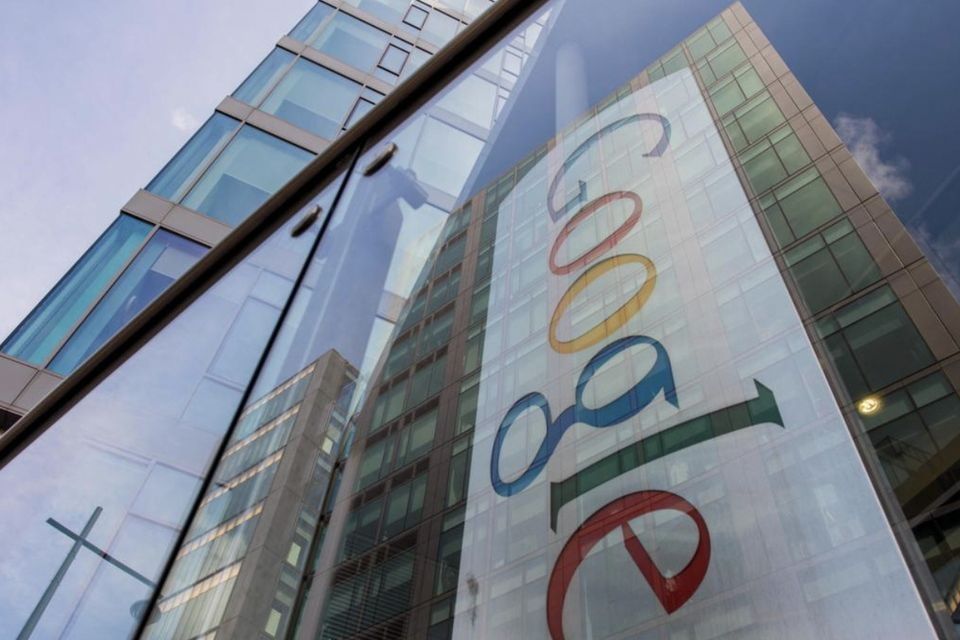Big Tech turns away from work permit system as hiring slows
Google's office in Dublin, where hiring has been scaled back this year
The IT sector has massively cut back on its use of the work permit system, in a sign that big multinational tech employers are scaling back on hiring.
While firms generally are on track to bring in record numbers of non-EEA workers this year amid acute labour shortages in many industries, tech has cut its reliance on work permits roughly in half.
The drop-off suggests that the Big Tech firms, which have laid off tens of thousands of workers globally in recent months, have also dramatically curtailed their recruitment in Ireland.
The sector has received just 1,399 of the 9,441 employment permits granted by the Department of Enterprise so far this year.
That proportion of less than 15pc of all permits is far below the level of recent years, when tech businesses accounted for between a quarter and a third of the total.
Moreover, the run rate has been declining every month so far in 2023, from 427 permits issued in January to 304 in April.
Perhaps more significantly the big US technology companies that form the backbone of Ireland’s foreign direct investment strategy are barely using the work permit system at all this year.
For instance, Amazon – by far the biggest single user of work permits last year, with almost 1,400 – has received a paltry 42 in the first four months of 2023. At least 10pc of Amazon’s Irish workforce comes from outside the EEA.
Microsoft, Google and Facebook owner Meta together have taken on just 121 non-EEA-permitted workers to date this year.
The IT sector is historically one of the biggest users of work permits to fill skills shortages in the industry, behind only healthcare in recent years.
But even with record-breaking demand on the work permit system as a whole and unemployment dropping below 4pc, tech is standing back in the fight for foreign talent.
Last year nearly 40,000 work permits were issued – about double the level of 2021 – with tech companies responsible for more than 10,000 of them.
It was by far the biggest year for permit issuance as a combination of post-Covid assessment backlogs and frantic hiring by companies coming out of lockdown pushed demand to new levels.
Before last year, 2008 was the record year, with just under 30,000 permits issued. This year looks likely to come close to that figure.
While job cuts in the tech sector have not been as severe in Ireland as they have been in the US, the sector has still lost thousands of jobs.
As employment permits are granted only for roles that cannot be filled from the available Irish and EEA labour pools, it is possible that tech firms are simply hiring recently redundant staff to fill open positions.
Yet the recent surprise rebound tech sector profits last month may have quelled the threat of further job cuts and could mean more growth for their Irish operations.
Strong quarterly earnings from Meta, Alphabet, Microsoft and Amazon sparked a stock market rally in late April as the industry appeared to bounce back from a post-Covid growth scare.
Now some are saying Big Tech looks poised for a new phase of expansion in Ireland, where 16 of the 20 biggest technology firms have significant footprints.
The period of retrenchment that began with last year’s interest rate increases seems to be ending as the big companies in the sector turn their focus to organic growth rather than big, risky acquisitions or major flagship projects like the “metaverse”.














